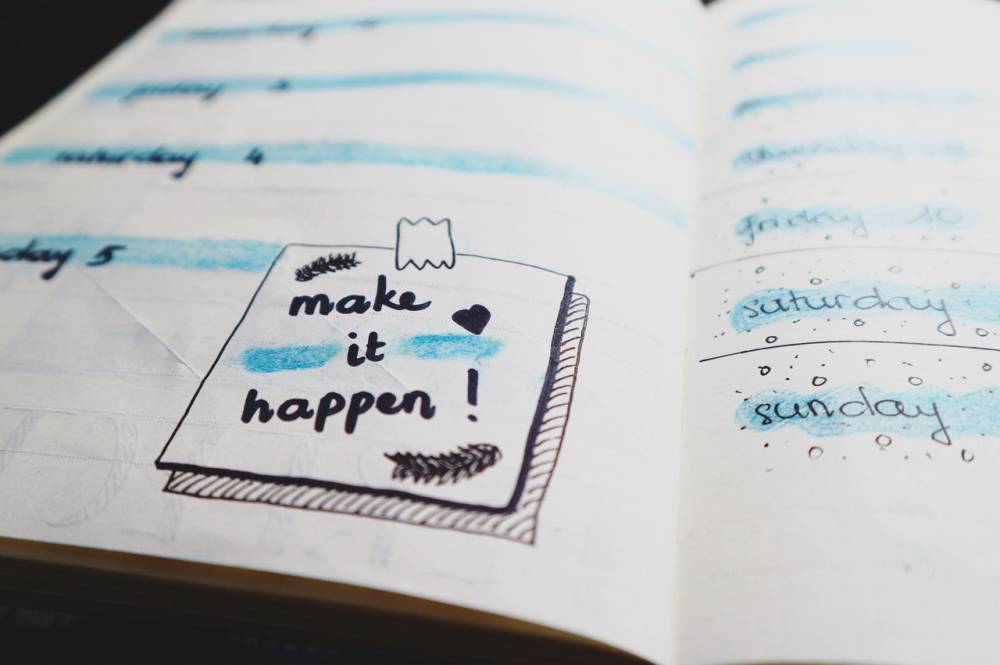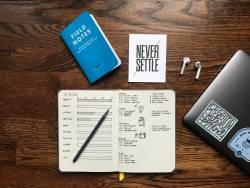
How to Set Goals, Plan & Execute: A Goal without a Plan is Just a Wish

If you are reading this, it is likely that you have found yourself not achieving your goals. For some of you, you may not have even started. To achieve a goal, you need to work hard and you may need some luck. But since we can’t control luck, let’s ignore luck for the discussion of this article. Let’s just focus on goals that you can achieve if you do the work. For example, let’s talk about goals like getting in shape, reading books, and learning a new language. These are goals that you can actually do if you put into the work. The big question remains: how to make yourself do the work?
You Need a Clear and Big Enough Goal
If a goal isn’t big enough to mean anything to you, why would you do it? So, to start with, we need a meaningful enough goal that is worth your effort. Then you have to make sure that your goal is as clear as possible. You have to be able to write it down. You have to be able to tell whether you achieve it or not. For example, a goal like “lose some weight by the end of the year” is not clear. If you lose one pound of weight by the end of the year, is it a success or not? Instead, set a goal like “get to 150 pounds by the last day of this year”. Make sure you know why your goal is meaningful to you. For example, you want to get to 150 pounds by the end of the year to become healthy and look good.
You Need a Plan
“A goal without a plan is just a wish.” - Antoine de Saint-Exupéry
If you don’t have a plan, you don’t have a chance of achieving your goal. There are so many people who love to tell you what they want to achieve and what they are going to do. Most of the time, they don’t even get themselves started. You don’t want to be one of those people. You need a plan. Some people may work well with detailed plans, while some may work well with very flexible plans. The bottom line is you need one.
To Plan, Work Backward from Your Goal
One of the effective ways to plan is to work backward from your goal. The amazing book “The One Thing” by Gary Keller and Jay Papasan call it “goal setting to the now”. Let’s assume your goal is to lose 30 pounds in 3 years. From this 3-year goal, find out your 1-year goal, and that is to lose 10 pounds a year. From this, figure out your monthly goal, which is to lose roughly 1 pound per month. Then your weekly goal is to lose a quarter of a pound. Finally, your daily goal is probably to walk 45 minutes and consume no more than a certain amount of calories everyday.
(Almost) Ignore the Big Goal and Focus on the Daily / Weekly Work
Now you have your big, long-term goal and you have worked backward to create your daily plan. The worst thing you can do is to check if you have achieved your long-term goal daily. It’s good to know your final goal all the time, but don’t keep checking daily how much of your overall goal is accomplished. You have to understand that the progress is rarely a straight line in reality. As long as you move forward in the long run, you are good. The plan is supposed to be written when you have a clear mind. View “following your plan” as your best shot at achieving the goal. Yes, you can do a regular check every month or every few months and see if your plan is actually bringing you closer to your goal. If it’s not, work on your plan and then go back to executing the plan.
Systems Vs Goals: Make Sure You Convert Your Goals to Daily Tasks
Scott Adams, creator of the famous comic strip Dilbert, has said in his great book “How to Fail at Almost Everything and Still Win Big” that he trusts systems more than goals. What he meant by systems are things that you schedule to do everyday.
“Goals are for losers, systems are for winners.” - Scott Adams
“If you do something every day, it’s a system. If you’re waiting to achieve it someday in the future, it’s a goal.” - Scott Adams
Do the Most Important Thing First
The famous author and speaker Brian Tracy has a wonderful and catchy name for the idea of “making the most important thing the first thing in the morning”. He calls it “eat that frog”. By “eating that frog”, we have the most energy for doing the thing that is the most important. Even if the other less important things aren’t getting done, we still get a win for the day. I like the way this idea is expressed as a question in the book “The One Thing” by Gary Keller and Jay Papasan.
“What’s the ONE Thing I can do such that by doing it, everything else will be easier or unnecessary?” - Gary Keller
Hold Yourself Accountable or Get Someone Else to Hold You Accountable
Let’s now assume that you have a good plan that will give you a good shot at achieving your goal. You still have to execute it. If a good plan is there, holding yourself accountable is the final key to success. You need self-discipline to hold yourself accountable. Remember that you have decided to succeed. That decision leaves you with very few choices now. For example, you can’t choose to be lazy because you have decided to finish up the project by the end of the month. You can’t choose to eat a lot of junk food because you have decided to get in shape. If you hold yourself accountable, try to get someone to hold you accountable. Find accountability apps, accountability buddies or accountability coaches that work for you. It’s difficult to tell what works best for you. Find out for yourself. Some people can hold themselves accountable. On the other hand, if you are humble enough to see yourself failing to do so, it’s okay to get someone else to do that for you. You are still the boss as you are doing that consciously. Do what it takes.













